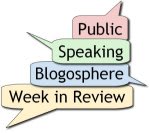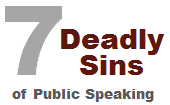
I was listening to a young speaker conducting a microphone check for a presentation before a large meeting.
People at the back of the room kept saying, “Project!” and “Louder, please.” We were already having trouble hearing the speaker, even before the room was full of people, but their approach wasn’t working.
Frankly, I wasn’t surprised. Just telling someone to yell doesn’t solve the problem of projection. Similarly, just speaking louder doesn’t create a powerful voice.





































